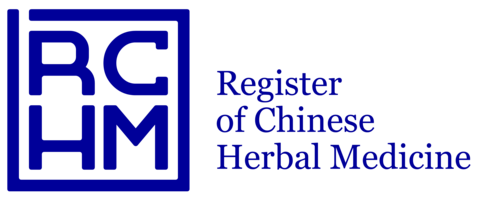Chinese Herbal Medicine and IVF
More and more research is showing how using Chinese Herbal Medicine can improve treatment outcomes during IVF cycles. Here are some examples:
--------
Integrating Acupuncture and Herbal Medicine into Assisted Reproductive Technology: A Systematic Review and Meta-Analysis of East Asian Traditional Medicine - Peng et al 2025
A new study by Peng et al (2025) evaluates the effectiveness and safety of women undergoing ART using acupuncture or herbal medicine compared to controls (sham or placebo). The overall quality of the evidence was classified as moderate quality evidence.
East Asian Traditional Medicine (EATM) acupuncture or herbal medicine was found to be safe, and an effective complementary therapy that can be used to improve assisted reproductive outcomes.
A retrospective cohort study of patients with polycystic ovary syndrome (PCOS) treated with a Chinese Herbal Formula in conjunction with IVF - (Pan et al, 2022)
The study concluded that CHM may significantly increase the pregnancy rate through decreasing AMH levels in follicular fluids. The study additionally concluded that CHM is a safe intervention for PCOS patients undergoing IVF.
Link to study
Effects of Chinese herbs combined with in vitro fertilization and embryo transplantation on infertility: a clinical randomized controlled trial - (Guo et al, 2014)
The study concluded that patients treated with CHM in conjunction with IVF showed improved embryo quality and fertility. The findings demonstrated the trial group had significantly increased endometrial thickness and increased implantation, thus improved conception rates in comparison to the control group.
Curative effect of assisted reproduction technology by Traditional Chinese Medicine multi-channel interventional therapy on 95 cases of in vitro fertilization and embryo transfer failure - (Xia et al, 2017)
The study backs up findings of CHM IVF 4. CHM was given prior to IVF cycles where TCM pattern differentiation of Liver Qi Stagnation, Blood Stasis, Kidney Deficiency were identified. The study demonstrated that CHM (alongside auricular acupuncture) in the 3 months prior to the IVF cycle significantly increased pregnancy rates as compared to IVF alone.
Effect of traditional Chinese comprehensive therapy on gestation in patients with previously failed in vitro fertilization and embryo transfer - (Xu at al, 2015)
The study evaluated the outcomes of CHM treatment in females where previous IVF cycles had failed. The CHM treatment was based on TCM pattern differentiation of Liver Qi Stagnation, Blood Stasis, Kidney Deficiency. The study demonstrated that CHM in the 3 months prior to IVF cycle significantly increased pregnancy rates as compared to IVF alone.
The Mechanism of Traditional Chinese Medicine Based on Semi-Targeted Metabolomics to Improve IVF Outcomes in Senile Patients - (Ma et al, 2021)
The study examined the mechanisms and outcomes of cases of infertility in geriatric females (age over 35 years), based on a TCM pattern differentiation of Kidney Deficiency. The study showed that adjunctive treatment of IVF with a Chinese herbal formula significantly increased pregnancy rates in comparison with IVF alone.
Efficacy of Traditional Chinese Herbal Medicine in the management of female infertility: a systematic review - (Reid & Stuart 2011)
The study suggests that management of female infertility with Chinese Herbal Medicine can improve pregnancy rates 2-fold within a 4 month period compared with Western Medical fertility drug therapy or IVF. Assessment of the quality of the menstrual cycle, integral to TCM diagnosis, appears to be fundamental to successful treatment of female infertility.
Research into COVID-19, SARS and Seasonal Influenza
The RCHM is keenly monitoring the research and reports of the use of Traditional Herbal Medicine in the fight against the current COVID-19 pandemic. Whilst many of these reports are encouraging, please be aware that resources regarding the treatment of Covid-19 are for informational purposes only. The RCHM does not recommend that practitioners claim to be treating or preventing Covid-19 at this stage.
Diagnosis and Treatment Protocol for Novel Coronavirus Pneumonia - National Health Commission & State Administration of Traditional Chinese Medicine on March 3, 2020 -
Open PDF
Clinical characteristics and therapeutic procedure for four cases with 2019 novel coronavirus pneumonia receiving combined Chinese and Western medicine treatment -
Link to study
Traditional Chinese Medicine in the Treatment of Patients Infected with 2019-New Coronavirus (SARS-CoV-2): A Review and Perspective. Yang, Y, et al. nt J Biol Sci 2020; 16(10):1708-1717. doi -
Link to study
Can Chinese Medicine Be Used for Prevention of Corona Virus Disease 2019 (COVID-19)? - A Review of Historical Classics, Research Evidence and Current Prevention Programs -
Link to study
Antiviral Action of Tryptanthrin Isolated from Strobilanthes cusia Leaf against Human Coronavirus NL63 -
Link to study
Traditional Chinese Medicine in the Treatment of Patients Infected with 2019 - New Coronavirus (SARS-CoV-2): A Review and Perspective -
Link to study
Traditional Chinese medicine for COVID-19 treatment -
Link to study
Asthma
Safety and Tolerability of an Antiasthma Herbal Formula (ASHMI™) in Adult Subjects with Asthma: A Randomized, Double-Blinded, Placebo-Controlled, Dose-Escalation Phase I Study
Complementary and alternative medicines are increasingly used for the treatment of asthma in Western countries. A novel three-herb antiasthma herbal medicine intervention (ASHMI™; Sino-Lion Pharmaceutical Company; Shan Dong China) was demonstrated to be effective and safe in a murine model of asthma and in a preliminary clinical study in China.
Urinary Tract Infections
Acute urinary tract infection (UTI) is a common bacterial infection that affects 40% to 50% of women. Between 20% and 30% of women who have had a UTI will experience a recurrence, and around 25% will develop ongoing recurrent episodes with implications for individual well-being and healthcare costs. Prophylactic antibiotics can prevent recurrent UTIs but there are growing concerns about microbial resistance and side effects from treatment. This review assesses Chinese herbal medicine for the treatment of recurrent UTIs both as a stand-alone therapy and in conjunction with other pharmaceutical interventions.



